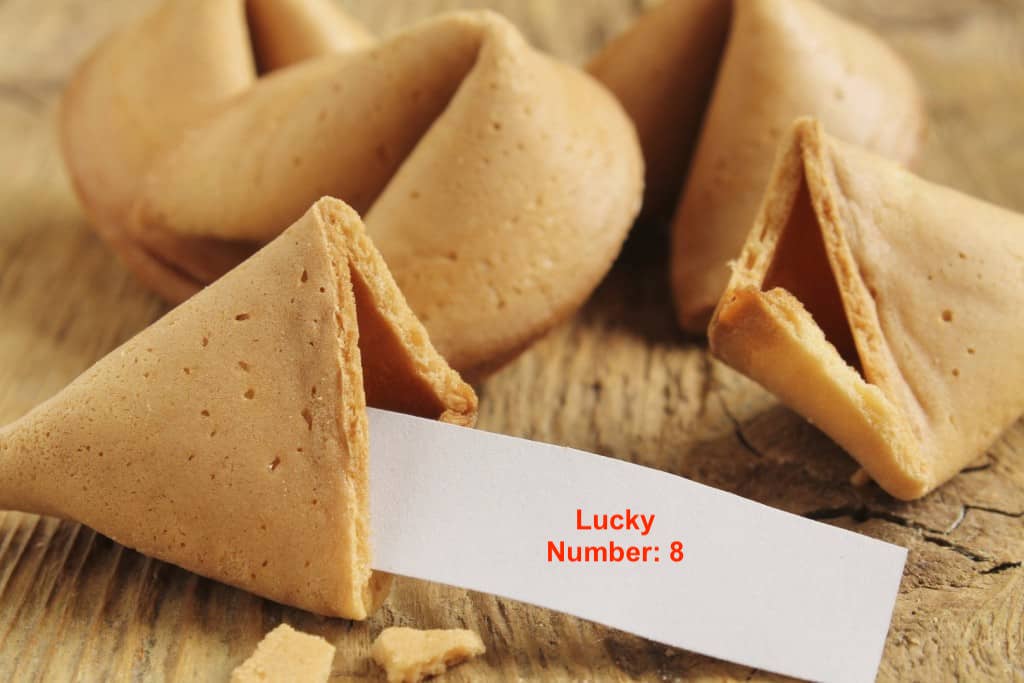
If you have been to China, you might have noticed the importance of numbers in Chinese culture. Highrise buildings often miss floors containing the number 4 and people will pay significantly more money for floors containing the number 8. The same can be said for lots of aspects of life in China – from gift giving to auspicious car number plates. Have you ever wondered why numbers are so important in Chinese culture? Keep reading to find out!
First, it’s important to note the significance of superstition in Chinese culture. It is thought that things can bring good luck, such as certain animals or the use of specific colours. Chinese numerology – the knowledge and significance of numbers – is no exception and its importance plays a big part in Chinese cultural understanding.
Chinese numerology – lucky and unlucky numbers in China
Lucky number 8 in China
We had to start with number 8, which is considered as the luckiest number in Chinese culture. 八 (bā) sounds like the character 发(fā) which means to get rich or prosperous. People in China often consider dates containing the number 8 to be the luckiest. Some interesting facts about the number 8 in China:
- The 2008 Summer Olympics in Beijing started on 08/08/2008 at 8 minutes and 8 seconds past 8pm.
- In 2003, the phone number +86 28 8888 8888 was sold to Singaporean Airlines for almost US$300,000.
- At times such as the Double 11 shopping festival (Singles’ Day), brands often offer discounted goods at prices such as 8 CNY or 88 CNY, which is thought to bring good luck to the purchaser!
Lucky number 2 in China
During Chinese New Year, you often see duplicated characters on decorations. This is because there is a saying in China that ‘good things come in pairs’. Likewise, at weddings it’s common to see the greeting 囍 (xǐ), which means double happiness.
Lucky number 6 in China
流 (liú), meaning smooth, sounds like the character for 6 in Chinese. This can be used to represent good fortune and a smooth road ahead.
Lucky number 9 in China
久 (jiǔ), which means a long time or long lasting, sounds like the character for 9. It is often seen at weddings in China due to this association with longevity. The number 9 was also associated with the Emperor of China in imperial times, so is seen to have a continued high standing because of this.
Unlucky Number 4 in China
死 (sǐ), meaning death, sounds like the Chinese character for 4. This is thought to bring bad luck, so the number 4 is avoided where possible. If the luckiest number in China is 8, the unluckiest is certainly 4!
Note: ever noticed that Chinese buildings often miss the 13th floor? This is due to western superstition that the number 13 is unlucky!
Other superstitions in Chinese culture
- Gifting a clock can signify that you are saying goodbye to somebody who is on their deathbed, so should be avoided as a present in China.
- The colour white is associated with death and loss in China, so is usually reserved for occasions such as funerals for dress and gifting.
- The colour black can represent darkness and shadiness, so is considered unlucky.
- Red is a good colour in China and can bring good luck – think red envelopes at Chinese New Year! Also, of course, the Chinese flag is red.
- Always receive a business card in China with both hands as a sign of respect.
- Don’t stick your chopsticks in your rice bowl after eating, which is said to resemble incense at a tomb and can signify death.
- Again, on the topic of rice, don’t finish your bowl of rice when you’re full as it’s then polite of your host to offer you more food!
- Gifting an umbrella to someone can mean that you want to separate from the person. The character 散 (sàn), to separate, sounds like the 伞 (sǎn) in 雨伞 (yǔsǎn), umbrella.
- Don’t clip your fingernails or toenails at night, or you might invite ghosts or evil spirits into your house.
- To gift pears can mean that you want to part ways with the person.
- Candles and fresh flowers are usually reserved for funerals, although fresh flowers have become more popular in China in recent years.
For more information on Chinese superstitions, check out our blog on the Chinese zodiac animals. Which animal are you on the zodiac?
Have you noticed any more superstitions during your time studying Chinese that we’ve missed? If so, we’d love to hear from you and we can add them to the list. Reach out to us on contact@thechairmansbao.com, or tag us on social media!























